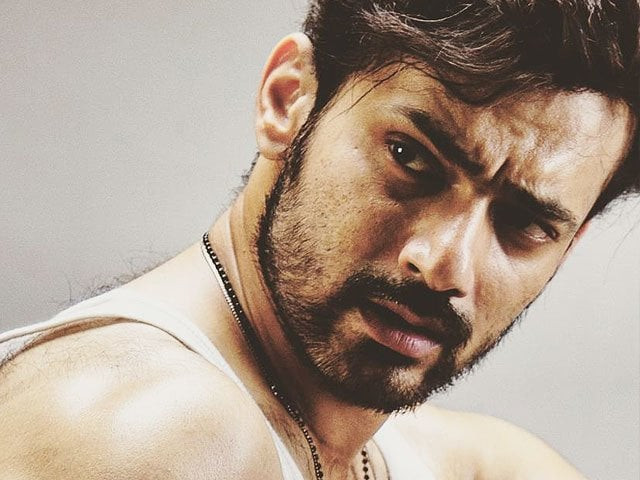
As one of the most popular new Pakistani actors and perhaps the most beloved baddy on television at the moment, Zahid’s career choices are a curious study. He started as a theatre actor but went on to perform in over tens of serials within a span of three years. But what made him choose the roles that he chose? The Express Tribune finds out.
ET: Do you think playing the similar role demarcates you in a certain way?
Zahid Ahmed (ZA): I do feel that way, yes. But I enjoy it because the label I have is of the ‘angry young man’ and I think every country needs to have at least one of those dominating alpha males. But whether I do a ‘good’ character or a ‘bad’ character, it does well with the audiences. Case in point, Gustakh Ishq has me in a romantic role and is doing very well. So it's about your acting abilities.
https://www.instagram.com/p/Ba1gkPwlj4_/?taken-by=zahid.ahmed.official
Also, I’m in complete control of changing whenever I want. It can be negative or positive or even oscillate between the two. I also feel that writers in Pakistan tend to write ‘bad’ characters better. In retrospect, 2014 and 2015 were a great launch as an actor with Alvida getting me my first award. Besharam and Zara Yaad Kar in 2016 were my most brilliant plays. But 2017 has been a bit of a challenge. I’m very critical of my own performances and I would not rate Dil e Janam as a play of my own standard. But I’m gonna come back with a bang in Daldal.
ET: To what extent do we find out about illegal immigration and human trafficking in ‘Daldal?’ What elements did you bring to the role? What did you go through to research?
ZA: The research part of the work is mainly done when the script is being compiled. As far as my own performance was concerned, it’s actually sad but I didn’t even have to go past my filming crew to meet people who have been directly impacted by the issue. We had workers who had a cousin or a brother who had been a part of illegal immigration. Some of them told me how they had travelled illegally to the UK and then sought asylum. As soon as we started shooting Daldal, I would sit on ends with the technical staff and the boys because they had so many stories to share and that started seeping into my performance.
https://www.instagram.com/p/BaO5PYiFHnh/?taken-by=zahid.ahmed.official
ET: You say that Shuja isn’t a bad guy and he does seem to get manipulated and doesn’t really seem to have a direction. What’s the grey element here that you’re speaking of? He wants the best for his family but he also wants a shortcut for it and he is callous and insensitive? What’s your take on this?
ZA: That’s true because Shuja is shown to be so frustrated and easily manipulated. Look at the class of society that this story is taking root in, which Shuja belongs to. He hasn’t had a great upbringing; no high quality education so he is aggressive and emotional and doesn’t always make sane decisions.
The second element, for which the credit goes to the writer, is Shuja’s mother who is the driving force behind his ambition. It’s played brilliantly by Asma Abbas and if you look at it realistically, everyone’s influenced by their moms. The writer created this story keeping this in mind, that if there’s someone in your household who’s got such a fragile attitude towards life, who wants to do well but isn’t, it would push him to do something drastic and ill-thought out.
https://www.instagram.com/p/BYnUxDaFlX9/?taken-by=zahid.ahmed.official
The government job Shuja just can’t seem to get much out of is another reality depicted in Daldal. In a lot of government jobs, regardless of the hard work, you can only achieve so much and there are very few benefits. The pay scales aren’t good and add to the frustration. The mother says, ‘Your father couldn’t amount to much and your brothers are also still studying so it’s your job to go abroad.’ She pushes Shuja to go ‘earn in pounds.’
The grey element that you are asking about can be seen now – where the story is at this point in time. You saw the miserable conditions Shuja was in and now that he’s taken the leap, you’ll see what he goes through in the UK. He faces hell: the choice of being a male prostitute, a drug dealer and an ammunition dealer. Kubra Khan is also doing a sort of a cameo for us in this Daldal and that angle is based on yet another reality too.
ET: What did you do to get into character? Was there a place you had to get into to get angry and frustrated?
ZA: Something pretty magical happened. The location where we were shooting in was a hellhole. What can an actor do about the dilapidated state of a set? Armeena and I had an absolute ball though– our social media posts are hilarious! We tried to have fun with it.
https://www.instagram.com/p/BXVkkTDlFia/?taken-by=zahid.ahmed.official
But for the most part, all the frustration you see is very organic real. My character is constantly angry and I would often get fed up with him. Any man who is slightly less angry could still aspire to go to London. But the writer threw all these elements into the story: the mother, the brother, etc, to push Shuja into the direction that the story is all about. And no, that this character is finally in London, the miseries he goes through gives perspective. The audience will see that despite all of Shuja’s courage – things will not be easy. Living abroad isn’t easy for legal immigrants, let alone illegal ones.
ET: Dramas are now focused more on human interest story. Do you prioritise human interest stories more than you did before?
ZA: Post Daldal, I’ve realised I’m now being looked up to and I will uphold that mantle. As an actor and human, instead of looking at stories, I will also be looking at the depths of the characters and the impact they have on society. My choice to do Daldal also upholds that.
ET: Roles for men are changing. A lot of people say there are no stories for them now. Is ‘Daldal’ not a story for men?
ZA: Yes, I deliberately do male-dominated scripts and want to bring back male audience to television. We’re moving very far away from the saas-bahu and extra-marital affair stories. Our writers and producers were in this comfort zone of these stories for women but they’re now writing male-centric stories too, about issues related to men and the things they go through in life.
https://www.instagram.com/p/BTeOX7llb-U/?taken-by=zahid.ahmed.official
ET: What about ‘Tau Dil Ka Kia Hua,’ where you essay a negative role?
ZA: I have a lot of respect for Ayeza (Khan) and Sami (Khan): they didn’t just want to cast anyone in that role and I have a great rapport with Khalil ur Rehman Qamar sahab and I couldn't say no to playing Saif. His dialogues are just beautiful!
Tau Dil Ka Kia Hua has done really well in the educated, upper classes but there is a section of the audience that wonders what is wrong with Ayeza’s character Maya, who leaves her husband Faris to be with Saif. They found the play to have a lot of elitist issues and thought Maya should remain with Faris so my character got a lot of hate for it. In these two plays, I was in a contributing role. Daldal, however, was my selection. Even though the aggression that you see in Daldal is similar, the story is different and it looks at a very pertinent issue.
https://www.instagram.com/p/BS3rsJNFUoT/?taken-by=zahid.ahmed.official
ET: You played a rapist in the play ‘Sangat’ which gave a pretty negative message: that the audience should feel sorry for the rapist. Do you think the industry relies too much on misogynist tropes?
ZA: We are the entertainment industry. Any channel can decide what needs to be put on air and actors will follow suit. I do feel that actors need to strike a balance, knowing the kind of impact we have. Now, I can say I would rather contribute my skills to something positive.
But what happens is, when something not so positive gets a high rating, even the production house says, ‘Rating hi is se aati hai!’ To be honest, the rating system is flawed. The mechanism is all flawed. It’s all numbers and that’s unfortunate. Fluff and masala stories seem to do well and what I can do for that is say, ‘Okay, I won’t be part of such and such stories.’ But things are changing, with dramas like Udaari and now Daldal.
ET: What’s your take on the Pakistani film industry?
ZA: It’s still in a very infantile stage. And I find it worrying that it’s treated mostly as a business. I think what happens when you look at an art form purely in terms of business, is that it comes at the cost of good content. What we are making is very generic, which is fine. We have rom-coms and masala comedies and that’s okay because we are a new film industry. We haven’t, however, made a single Pakistani film yet.
https://www.instagram.com/p/BSoVKIRlU2-/?taken-by=zahid.ahmed.official
ET: It’s morphing pretty quickly as well. Do you think our films could get bigger than dramas?
ZA: That’s a tall task because we’re a TV nation. Even if we watch love Bollywood, we’ll come back and watch TV. Cinema isn’t just about money. It’s also not just about making artsy movies either. You know Pakistani audiences are not new audiences – you can’t fool them. We had very strong dialogues in Punjab Nahi Jaungi and now we need character. ‘Help me, Durdaana’ became such a hit and that’s what happens when you have strong dialogues. Now, what we need is to create memorable characters. Gabbar Singh had barely any scenes in Sholay but we still quote him, still remember him. We need to build and emphasise on characterisation in films too.
ET: Would you be doing any films in the future?
ZA: I was offered three of four projects in the past and now that I see them, I am glad I wasn’t a part of those. I would rather wait five years to do a film than do a terrible one immediately.
https://www.instagram.com/p/BRvlHSQFmDz/?taken-by=zahid.ahmed.official
ET: So no films are on the cards as of now?
ZA: No, no! I’m featuring in my first ever film – a short role with an ensemble cast. The film is called Jhol and it’s been in the works four two years. One of the cast members abandoned ship and I have taken up their role. Shahid Shafaat is directing Jhol and it’s a very funny script, with Ali Azmat as the male lead and Urwa Hocane as the female. Ali is playing himself and it’s hilarious.
The film is the story of four or five interesting characters who have one bad day. The same group of people is doing something really exciting next year too, which I can’t talk about now but it’s going to be great! I’m stepping in to helping them finish Jhol and for my own artistic satisfaction, I did this role in my own way: instead of playing a doctor which is all straight-arrow, I’m playing a doctor with severe OCD. Once I return from London, we’ll start shooting it.
ET: What are your upcoming dramas for the next year? Still playing the baddie?
ZA: The first project that I’m working on is directed by Farooq Rind, called Pukaar. It has me Yumna Zaidi, and a fantastic story about a feudal family to boot. Yumna’s character is being held and I’m the knight in shining armor that swoops in to save her.
The second project is Daaman Aur Chingaari and it’s quite male-centric. My character is street-smart and clever – some who likes to play around but is a good guy. It’s a very, very fun play written by Hashim Nadeem, who also penned Khuda Aur Muhabbat. There’s a very wrong perception that I’m exclusive to only one channel, which I am not. I’m a very fluid person; constantly evolving. Next year, I’ll go back to being my choosy self.”





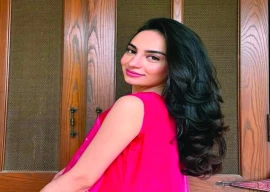
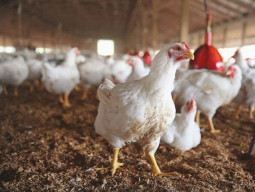
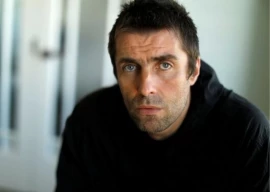
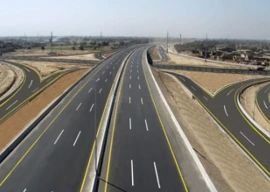


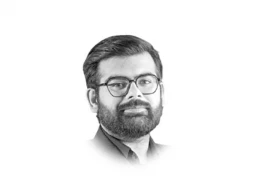


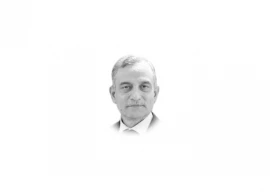


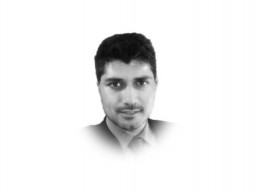
COMMENTS
Comments are moderated and generally will be posted if they are on-topic and not abusive.
For more information, please see our Comments FAQ